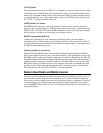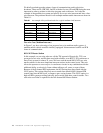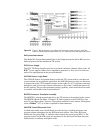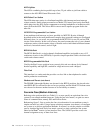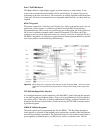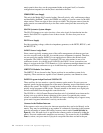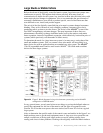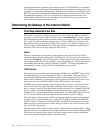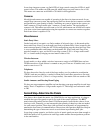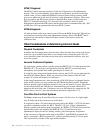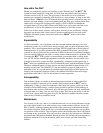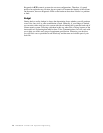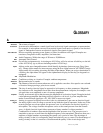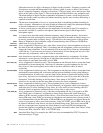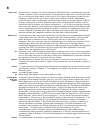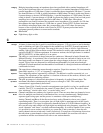
Chapter 8 - Determining Intercom Needs 125
In our large intercom system, we find 4 IFB x 6 large control rooms plus 4 IFB x 4 small
control rooms. This makes our IFB count 40, which brings our total count so far to 100.
This means we cannot use an ADAM
™
-CS 64x64 for this application.
Cameras
Most high-end cameras are capable of operating in the four-wire intercom mode. In our
sample large intercom system, the engineering staff has chosen the best cameras available
and purchased a great quantity of them. Continuing our count of points in the system, we
find 6 cameras x 6 large studios plus 3 cameras x 4 small studios. The total number of
cameras is 48. This makes our total count so far 148, which means our ADAM will consist
of at least a twin frame combination using bus expanders to connect two matrices together.
Each frame alone is capable of 136.
Miscellaneous
Static Party-Lines
On the back end of our matrix, we find a number of belt pack rings. As discussed earlier,
these static Party-Lines (2 in each studio) are fixed to dynamic Party-Lines (created by the
matrix amongst panels). Under the AZ™-Edit configuration program, the static Party-Line
is set as permanent talker and listener on the dynamic PL. Since each static Party-Line
must be counted as a port, we find 20 in our large system (2 PL’s x 6 large studios and 2
PL’s x 4 small studios) bringing our total matrix count to 168.
Wireless Intercom
In each studio, we have added a wireless intercom to consist of a BTR300 base and two
TR300 transceivers. Each of these is counted as one port. There are 10 studios total, so our
matrix count is now 178.
Telephones
We have three telco lines for each of the large studios, two for production coordination
(TIF951) and one provided by a vender for talent dial-in and other general use. Our total
telephone circuits are 18, (3 telco’s x 6 large studios). Our matrix total now stands at 188.
Studio Announce and Dressing Room Paging
We have one stage announce amplifier and one dressing room page amplifier in each large
studio. That is 2 amplifiers x 6 large studios equals 12. This brings our total matrix count
to 200.
Second Step--Determine the Panels
Now that we have found the matrix size (200x200) for our large application, it is time to
establish the type of keypanel to specify for each of the control positions. The RTS
™
matrix intercom product line has almost 25 different panels from which to choose, from
four keys to 64. Generally, we are interested in the quantity of these keys that are needed
for each control position. These keys (talk and listen on each panel) are programmed to
emulate the four forms of communications. Discussions with operators might be of help in
determining the type of intercom console to assist them in performing their jobs.
In our large system scenario, we find two styles of matrix panels are more than enough to
fulfill the needs of all 10 positions in each large studio and the director/producer position
in the small studios.



